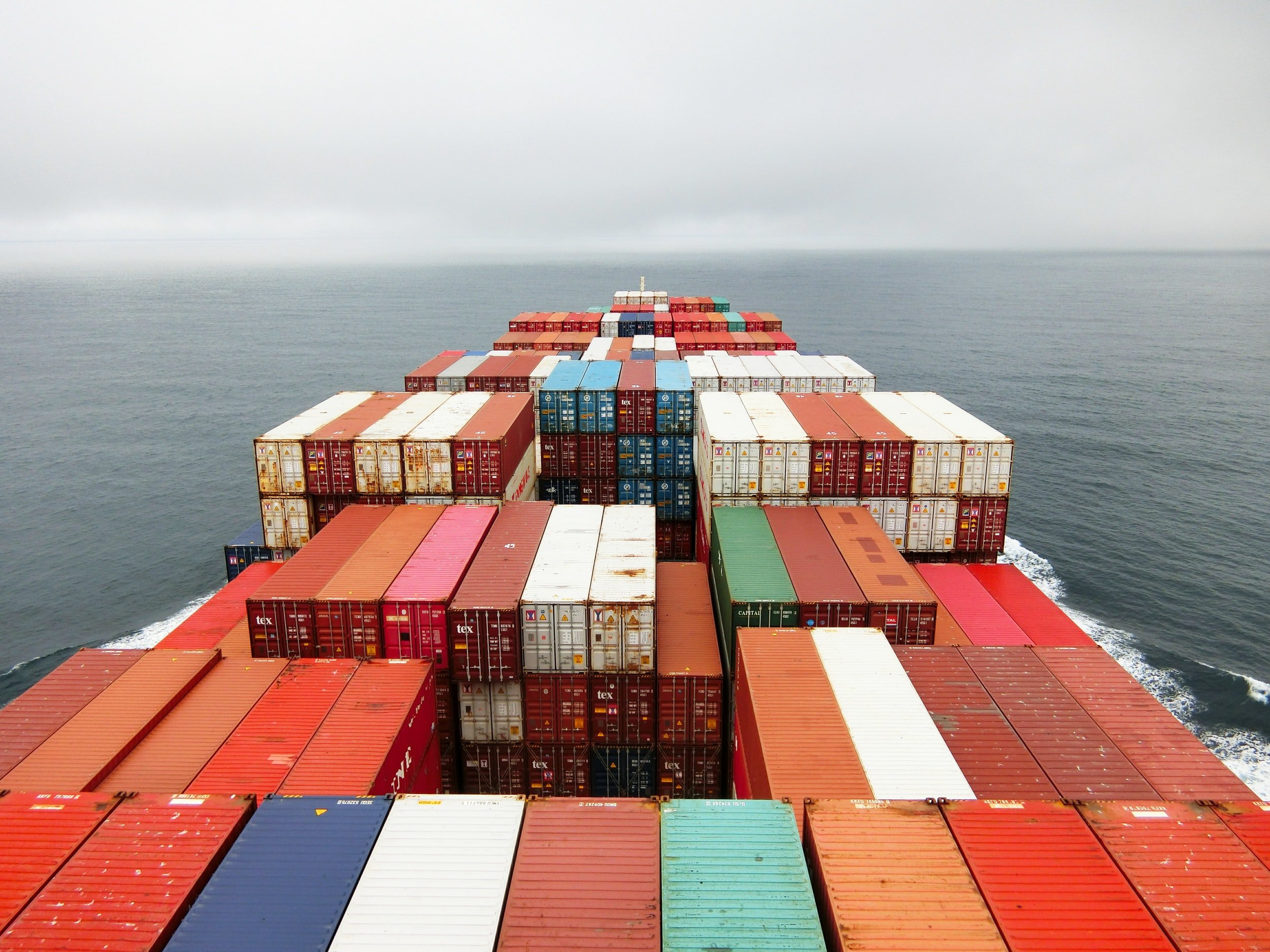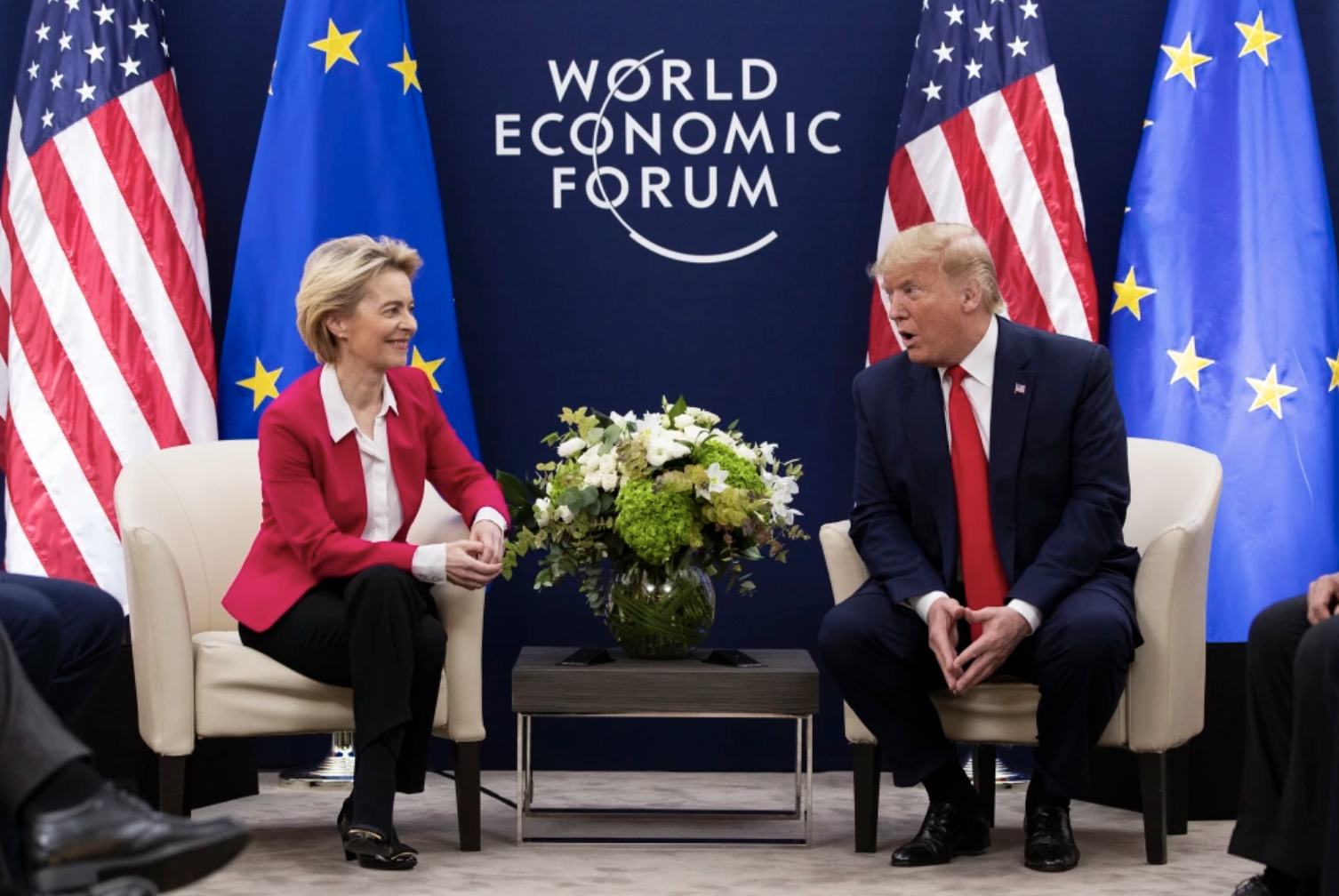Executive director Barry Lynn’s observations about how containerized ships off-loading at ports overwhelms supply chains were cited in a piece about what Biden can do to help minimize inflation.
Read MoreIn an opinion piece about supply chains, Paul Krugman mentions Executive Director Barry Lynn’s predictions about the dangers of centralizing manufacturing on supply-chain risks.
Read MoreExecutive director Barry Lynn is featured in an interview with former Open Markets employee, Michael Bluhm discussing the U.S. government’s developing approaches to Big Tech.
Read MoreOpen Markets Institute executive director Barry Lynn published a feature article in Foreign Affairs that details how the United States can use traditional antimonopoly principles to establish a simple quota system designed to “shock proof” international systems, strengthen democracy, and rebuild a liberal world order.
Read MoreExecutive director Barry Lynn is quoted in reporting about President Biden’s appointment of former Open Markets employee Lina Khan to the Federal Trade Commission.
Read MoreBarry Lynn urges Congress to take swift, bright-line action to protect our democracy from private corporate power.
Read MoreBarry Lynn, Open Markets Institute, Executive Director writes about an Irish Council for Civil Liberties report arguing that it proves the EU is moving too slowly against Big Tech.
Read MoreBarry C. Lynn responds to Zach Carter’s review on Liberty From All Masters’.
Read MoreThe president-elect doesn’t need Congress to break up monopoly power.
Read MoreBarry Lynn, executive director of Open Markets Institute, writes in The Washington Monthly about how the president-elect doesn’t need Congress to break up monopoly power.
Read MoreCJL reporter Austin Ahlman argues that the decline of local TV news can be addressed through updated public policy that extends ‘must-carry’ provisions to streaming platforms, ensuring the continued viability of local journalism.
Read MoreIn this issue, we take a look at the threat posed to local television news by the rise of internet-based live television platforms, especially as must-carry regulations haven’t caught up to the new streaming environment.
Read MoreOpen Markets Institute’s Europe Director Max von Thun, in collaboration with partners European Policy Centre and Konrad-Adenauer-Stiftung, has published a policy briefing urging European Union leaders to strengthen their resolve in tackling Big Tech despite increasing pressure from the new Trump administration and US tech billionaires.
Read MoreThe Open Markets Institute announces the return of Sally Hubbard as a Fellow, made possible through a generous grant from the Knight Foundation Federal Alumni Fellowship Fund at The Miami Foundation.
Read MoreIn a submission to the UK Intellectual Property Office's consultation on copyright and artificial intelligence, groups call for the urgent implementation of an opt-in protocol for AI training data collection to protect creators' rights and compel technology companies to respect these rights through fair compensation.
Read MoreThe Center for Journalism and Liberty at Open Markets Institute commends today’s ruling by the Paris Economic Activities Court with a comment.
Read MoreOpen Markets submitted a letter to the French Competition Authority advocating for updates to France's merger control thresholds to address concerns over "killer acquisitions" by dominant firms, especially in Big Tech and Big Pharma, emphasizing the need for a more robust and flexible regulatory framework.
Read MoreSenior reporter Karina Montoya was listed as an expert to discuss the decline in Google's search quality and its potential impact on users.
Read MoreSenior reporter Karina Montoya expresses concern on Amazon’s new ad tech service strengthens its market control, potentially threatening retailer independence and raising concerns about data and margin manipulation.
Read MoreIn their paper, “Rules of the Game: Sports as a Lens for Understanding Fair Competition,” Open Markets policy counsel Tara Pincock and senior legal analyst Daniel Hanley use sports as a framework to refine antitrust law’s notions of fairness.
Read MoreIn this issue, we look at efforts by Big Tech and the Trump Administration to disrupt European democracy, and explore Amazon’s latest move to consolidate control over online retail and advertising.
Read MoreOpen Markets Institute’s transportation policy analyst, Arnav Rao, published an op-ed arguing that instead of making grandiose claims about the Panama Canal, President Trump should focused on restoring U.S. shipbuilding as well as adopting a more robust maritime policy to reclaim the seas from China and foreign corporations.
Read MoreSenior EU Fellow Cori Crider expressed how after the AI summit in Paris, Europe must avoid succumbing to Trump's influence and should assert its independence, rejecting appeasement toward the US and Big Tech, which threaten its political and economic sovereignty.
Read MoreOpen Markets transatlantic partnerships director Max von Thun was quoted in an article in the Journal of Political Inquiry regarding the fate of US-EU cooperation over big tech regulation and enforcement under the second Trump administration.
Read MoreOpen Markets signed a letter to the UK government in response to the recent appointment of a former Amazon executive as the new Chair of the Competition and Markets Authority (CMA).
Read MoreEurope director Max von Thun’s thoughts are citd advocating for strengthening the EU’s digital regulations to achieve digital sovereignty.
Read MoreThe Open Markets Institute and its Center for Journalism & Liberty at Open Markets have submitted a detailed letter to the UK’s Competition and Markets Authority (CMA) to support its Strategic Market Status (SMS) investigation into Google’s general search services.
Read MoreCJL director Dr. Courtney C. Radsch warns in a quote that unchecked data control can lead to monopolization and ethical issues in AI development.
Read MoreIn this issue, we discuss how Biden blocked Nippon Steel’s takeover of U.S. Steel. Now the Trump team has to figure out how to save the tottering corporation, and America’s broader steel industry.
Read More





























